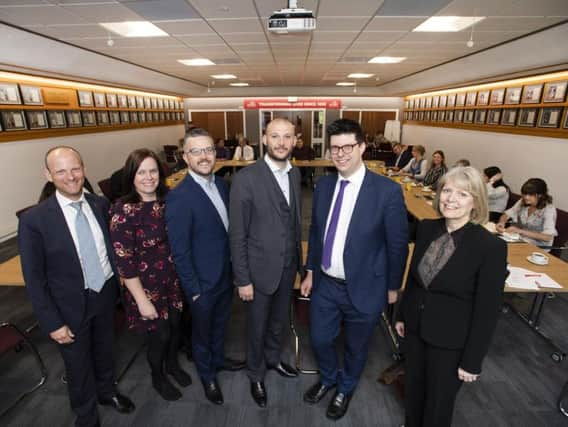Matching education to real world needs


Organised by Downtown in Business and hosted at the University, the event discussed what local authorities, work programme providers and educational institutions are doing to break down barriers to work and to create a workforce that is responsive to the business skills’ demands of the region.
Lancashire’s economy is predicted to grow by 27 per cent over the next 10 years, with the expected average growth of 33 per cent for the rest of the UK.
Advertisement
Hide AdAdvertisement
Hide AdWith an ageing workforce and modest population growth, Lancashire’s challenge is to achieve the employment targets set out by the Lancashire Economic Partnership in industries such as aerospace, digital and advanced manufacturing.
The business breakfast event also discussed the potential devolution of Government power to build a skilled labour market for all.
Northern Powerhouse Partnership Director Henri Murison said: “Our Educating the North report highlighted the need to focus on skills not only in Lancashire, but across the Northern Powerhouse, to meet the needs of our businesses as in key capabilities like advanced manufacturing where we are below national average on levels of higher skilled people. There is a need for employers to come together with universities and all those partners who have an influence over the future course of young people’s lives, as well as ensure the next industrial revolution dose not pass by their longer standing, committed workers.
“Businesses need to be involved in schools, helping raise their aspirations and give people the knowledge they need to make better choices about their future. We need to see parity of esteem for work based learning and academic routes. “
Advertisement
Hide AdAdvertisement
Hide Ad“The north is leading the way on degree apprenticeships – and institutions like UCLan are displaying real commitment to getting these great opportunities open to more students, as well as reaching employers of all sizes and scale. We believe their work on this will be best practice”
UCLan has introduced flexible degree apprenticeships that current students can switch to, so in less than two years the first wave of graduates will be equipped with both the theoretical and practical knowledge needed.